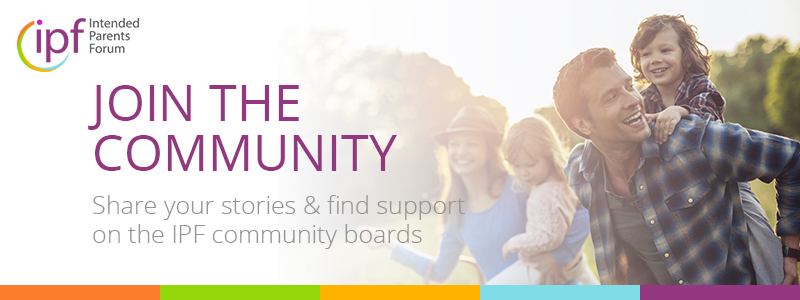Some helpful hints on what to do after your friend/family member has completed their surrogacy journey.
Even more than a surrogate being pregnant, it seems people have difficulty in deciding how they should act around a surrogate after she’s given birth. Some will cut off contact with her until they’ve reached a time limit in their minds, which they’ve determined is long enough that they won’t walk in on an emotional wreck. Others treat her as though she’s lost one of her own children, and most of the remainder just can’t decide how they should react at all.
The confusion is forgivable, if not a touch misguided, and it comes with the territory of being a surrogate, so most of them understand your hesitant feelings on the subject. What this guide boils down to is helping you navigate the waters of surrogacy, postpartum, and I promise it’s not as difficult as it may seem!
First, we’ll address some common misconceptions about a surrogate post-partum —
Postpartum Depression:
Let’s go ahead and tackle this one first, because it seems most people feel as though surrogates are more likely to experience postpartum depression simply because they’re surrogates. This assumption is usually misplaced, in that most believe a surrogate will experience this because she’s, ‘given up the baby,’ which is generally not the case. Surrogates go through extensive psychological screenings to make sure that such a thing does not happen, for the parents’ sakes and hers.
InfertilityAnswers.org sums up an explanation nicely; “Remember that Postpartum Depression in a surrogacy situation does not indicate that the match or relationship between the parties was flawed or that the surrogate wanted to “keep the baby”…every Intended Parents nightmare. Instead it is a medical side effect that can happen in any birth situation. Being concerned and aware of this possibility is not only wise but shows caring and respect for someone who has offered the greatest gift to her Intended Parents, the gift of life.”
Postpartum depression can happen in roughly 10-20% of women, regardless of how or why they’ve given birth; being a surrogate does not make a woman more susceptible to the hormone imbalance that is postpartum depression. If you think your friend or family member is experiencing these symptoms, be supportive and make sure she gets the help she needs, but pity about losing a baby that was never hers is not necessary.
Feeling a Little Blue Post-Pregnancy:
While a surrogate may not necessarily have post-partum depression, giving birth is still an incredibly turbulent, emotional time, and this can be amplified by the situation. Surrogates will likely tell you there are a multitude of reasons why they’re not feeling their usual selves post-birth, and generally, it has nothing to do with giving the baby to the parent(s).
Here are a few common reasons your surrogate may be feeling blue:
- Contact with the parent(s) has dropped off after the birth. Toward the end of a surrogate pregnancy, there is an insane amount of excitement, a flurry of activity as everyone prepares for the birth, and the surrogate is usually in frequent contact with the parent(s) nearing the end. In some cases, every day. After the birth, the parent or parents are usually adjusting to having a baby in the house for the first time, or a new addition to their family. This usually means they can’t keep up the level of contact they had before the birth, and it tends to drop off. Sometimes this drop-off is permanent, other times it’s merely temporary. Usually, she’s not getting as much contact as she did right before the birth, but that is incredibly situational, and depends on the surrogate and IP(s). Logically, the surrogate understands and acknowledges the reason for the decline, but it can still be a little much to absorb when they have such a rush of hormones going through their bodies.
- Going through postpartum recovery with no baby. But you just said it wasn’t about the baby! Well, it still isn’t. This has more to do with not having that cute and cuddly distraction on hand to keep her mind off the pain and helping move forward with her daily routine. Another common misconception is that recovery should be easier without a baby around, because, well, they don’t have a baby to take care of! In some ways this may be true, (no crying in the middle of the night for a diaper change), but for the most part it isn’t. Her body is still in major recovery mode, either from a vaginal birth or C-section, and it still takes the same amount of time for that recovery to happen. Some surrogates will feel like major slackers because they don’t have the added responsibility of taking care of a baby, and will get a little sad when they can’t keep up with day-to-day living. They might even push themselves to do too much, too soon, because people know she doesn’t have the baby, and she feels the need to meet their expectations.
- Feeling less attractive, physically. One of my laments post-birth was always; “People will think I’m just fat, even though I just gave birth because I have no baby to show for it!” After I get over this it seems silly, but it’s true. No one thinks twice, or at least no one with any sense, about how a woman’s body looks after she’s given birth. The testament to her hard work and weight gain is staring at you, with the most adorable cheeks in the cutest onesie this side of the Earth. For surrogates, however, this isn’t the case, and it can be somewhat intimidating to go out in public with our post-baby bodies with no proof of how we achieved them. Even family or work functions can have this effect, because for some reason there are people who believe that, because the baby isn’t hers, the last nine months of baby body should magically disappear. Unfortunately, this isn’t the case.
- Loss of identity. This one is generally the most bittersweet of all because a surrogate is faced with the fact that her part in the journey is, essentially, over. Yes, there is usually contact, visits, pictures, updates, and so on, but her part in the orchestration of creating life is finished. It’s the ending of a chapter, and any future chapters will see her playing a much more minor role than before. Think along the lines of a child leaving home to set out on their own, being independent of their parent(s), and it is somewhat close to that.
So, how should you react, and how can you help?
I’m so glad you’ve asked!
Reactions, of course, can vary depending on the surrogate you know, but the primary one in almost all cases should be happiness, if not a little pride. She has done something incredible, amazing, and selfless, and while they don’t expect you to fawn all over them for this fact, you should at least be happy for them and what they’ve accomplished. Pride can come in with the fact that she’s done something not too many women claim to be able to do. They’ve helped to make, or expand, a family, and given something to a person or couple that they may not have had otherwise: a biological connection with their child(ren).
What if she’s experiencing postpartum depression or blues, as mentioned above? Then you should be understanding, but for the right reasons. She’s not sad she’s given a baby to a wonderful parent or parents, she’s sad because of some of the reasons listed above.
Try to be empathetic and supportive, a shoulder to cry on if need be, and listen to what she’s saying might be the source. In most cases, this will wane as the hormone levels equal out, and of course keep a sharp eye out of they don’t, but for the most part don’t assume she’s sad because she, ‘gave up her baby’. Surrogates will, emphatically, inform you that the baby was never hers; she was just keeping it safe until it was ready for its parent or parents!
As for helping, just think of all the usual things you help a woman and her family with after a baby arrives—minus anything to do with the baby.
Here are some suggestions:
- Help out around the house. Yes, she doesn’t have a baby to take care of, but as was pointed out above, she is still recovering from birth and helping with the laundry, dishes, vacuuming, and so on, would likely be welcome!
- Casseroles. The staple of helping out, everywhere. During recovery, dropping off a casserole, or meal of some form, to the family could mean the difference between ordering pizza for the fourth night in a row, versus having a real, home-cooked meal. Not only will the surrogate appreciate this one, it’s likely her family will, too.
- Help out with the kids she does have. A prerequisite for surrogates is to have had at least one, live child of their own, which means all the surrogates out there have children of their own to take care of. Helping get their children to after-school activities, picking them up from school, or just getting them out of the house for a while, might give the surrogate some relaxing, alone time to recover in peace.
- Help out with the pets. This one falls into a similar category to helping around the house and with the kids. Maybe the surrogate has a fish tank that needs some cleaning, or a dog that would love to join you for your evening jog. Either way, it says a lot when you take the time to help out with the—usually—smaller members of the family.
- Keep her company. This suggestion not only gives the surrogate some much-needed adult interaction, but it could also mean that her husband or partner can go out and get some errands done, or do something fun for themselves. All without feeling guilty that the surrogate cannot go out and do these things with them.
Hopefully, you’ve found some of these surrogacy postpartum tips and insights helpful, and the surrogate in your life will likely appreciate the time you’ve taken to gain a better understanding of her journey, and its end.
We couldn’t have said it better, that is why this is a direct repost from All Things Surrogacy.


